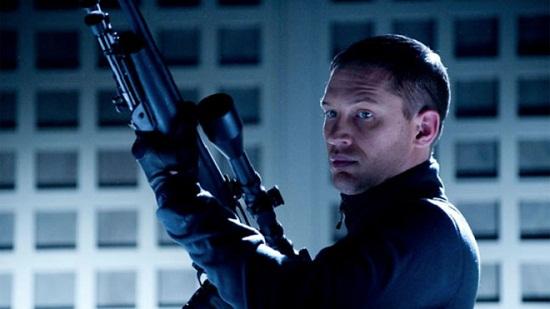Culture
Revisiting The Rotten: “This Means War”

Director McG has made a career of exploiting the sexuality of his onscreen stars ever since he burst onto the scene with Charlie’s Angels. The hokey send-up of the 1970s spy series was equal parts glitz and tits, with a bombshell cast and a laughably ludicrous plot. Over a decade later, McG is up to his same tricks again, except this time, he’s traded breasts for double-breasted Armani suits. 2012 release This Means War is McG’s loud, raucous attempt to channel his trademark empty-minded vacuousness into something as charming as Charlie’s Angels. Unfortunately, the charm of This Means War is in high demand, but nowhere to be seen.
To be honest, the biggest issue with This Means War is that it’s the wrong movie in every sense of the word. I don’t just mean that it shouldn’t have been made. I mean that the minimal plot and the incredibly shallow conflict at the film’s center don’t even make sense. If you’ve seen the trailer, you know that all of the “hilarity” stems from the fact that federal spies and best buddies Tuck (Tom Hardy, awfully named) and FDR (Chris Pine) both want to bone Reese Witherspoon. Assuming that both men are into her (we’ll just call it suspension of disbelief, as Witherspoon’s Lauren lacks the requisite charm to make her a viable romantic lead) there’s another problem here. She’s barely in the damn movie. Sure, she goes out on a date with Tuck, and then she goes out with FDR. Then the plot returns to…I dunno, there’s something about a guy whose brother died and he wants revenge. The movie makes it difficult to invest in the real plot, whichever it is. Reese Witherspoon is pretty much the B-plot of this movie, which is supposedly a romantic comedy. McG clumsily tries to make her relevant in the end with a last-ditch effort at a Mexican stand-off, but even with a gun to her head, it’s hard to care about what happens to her.
The real romance is between Tuck and FDR. No, I don’t mean bro-mance. I mean romance. This Means War, for lack of a better term, is really gay. Like, the “nine guys blowing ten guys” kind of gay. It’s seriously one of the most homoerotic things I’ve seen since Guy Ritchie’s Sherlock Holmes. But of course they couldn’t do something like that with two sexually viable leading men and a mainstream movie, right? Studio politics be damned. The relationship between Tuck and FDR is the driving force of the movie, and to pretend otherwise is completely ridiculous. Okay, sure, maybe there’s a little wish-fulfillment going on in my reading of this movie (I mean, seriously, how crazy hot would that be?), but it really feels like there’s more spark there than with either of their relationships with Lauren.
Still, even if McG had ditched the lame love triangle, This Means War is filled with a staggering amount of plot holes. For instance, in one moment the audience is supposed to laugh as Tuck shoots a curare dart at his supposed best friend. Moments later, villains are shooting at them. Let me get this straight: violence is sometimes funny? I’m not questioning this from a morally superior standpoint; I legitimately don’t understand. Can McG supply us with a list of rules for when shooting/being shot at is funny versus when we’re supposed to be frightened for our male leads? There’s just no consistency to speak of in a movie like This Means War. Granted, no one walked into the film expecting something cerebral, but if you could do movie-goers the great honor of not treating us like complete morons, I’d be eternally grateful.
This Means War could have been something. Sure, it was made to be fluff, but it isn’t even that. The piss-poor pacing, the shoddy character development and the less-than-compelling plotlines all come together in a firestorm of sex, bullets and mediocrity. Even if the film had exclusively focused on either the romance or the revenge storyline, This Means War doesn’t have the conviction that McG showed in his earlier work. When people are saying Charlie’s Angels is your good movie, you should probably be a little concerned.